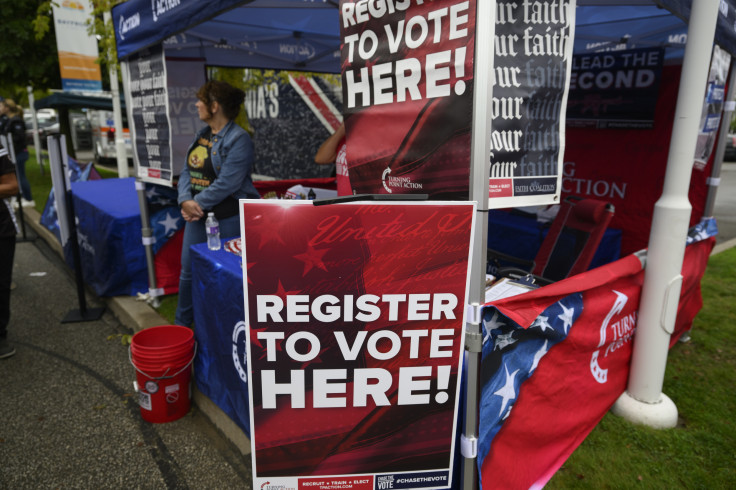
The U.S. Supreme Court has unanimously ruled that Pennsylvania voters can submit provisional ballots if they've made errors with absentee ballots, rejecting a Republican-led challenge to the state's voting rules in a key battleground.
One of the most fiercely contested battleground states, Pennsylvania is also home to one of the country's fastest-growing Hispanic communities along the "222 Corridor"—a stretch of highway connecting towns and small cities northwest of Philadelphia. This area has become prime ground for Democrats and Republicans alike to gauge their support among Latino voters in a state where tight races decide its 19 electoral votes.
Pennsylvania Republicans and the Republican National Committee had requested that the Supreme Court block a state court ruling allowing voters to fix absentee ballots that did not meet security envelope requirements. The GOP argued that thousands of votes could be at risk, while voting rights advocates and state officials stressed the claims were baseless and similar to those made in the 2020 election. New York University law professor Richard Pildes estimated around 25,000 absentee ballots could be affected, according to The Washington Post. For comparison, 2.7 million mail-in ballots were cast in the state's 2020 election.
In Pennsylvania, even a small number of votes could be decisive, with Democrat Kamala Harris and Republican Donald Trump locked in a dead heat just days before the election. A Washington Post poll conducted from Oct. 26 to 30 among Pennsylvania voters shows Harris at 48% among both registered and likely voters, while Trump stands at 47% with both groups. The poll also included an option for voters to select a third-party candidate.
Friday's decision marks the second time this week that the Supreme Court has intervened in a state-level election case. On Wednesday, the court's conservative majority allowed Virginia to remove 1,600 potential noncitizens from its voter rolls—a move immigrant rights groups have contested, arguing it may disenfranchise naturalized and native-born citizens.
The Pennsylvania case began in April when two Butler County voters found their absentee ballots would be uncounted due to a missing inner 'secrecy' envelope. So, they submitted provisional ballots, but the county refused to count them, prompting the voters to sue. An appeals court, followed by the Pennsylvania Supreme Court, ruled in favor of the voters, leading Republicans to appeal to the U.S. Supreme Court
Republicans contend the Pennsylvania Supreme Court overstepped its role, essentially rewriting the election code, which they say violates state legislative authority. Pennsylvania Democrats, along with election officials like Bob Harvie, chair of the Bucks County's election board, said provisional ballots "provide an essential safeguard, allowing voters to make their voices heard even if minor errors occur with their mail-in ballots."
The ruling also recalls the Supreme Court's recent rejection of the "independent state legislature" theory, which would grant state legislatures broad control over election laws with limited court oversight. Chief Justice John G. Roberts Jr. highlighted, however, that while state courts retain oversight, they must not exceed judicial review boundaries. Republicans argue that Pennsylvania's court did so in this case.
© 2025 Latin Times. All rights reserved. Do not reproduce without permission.


